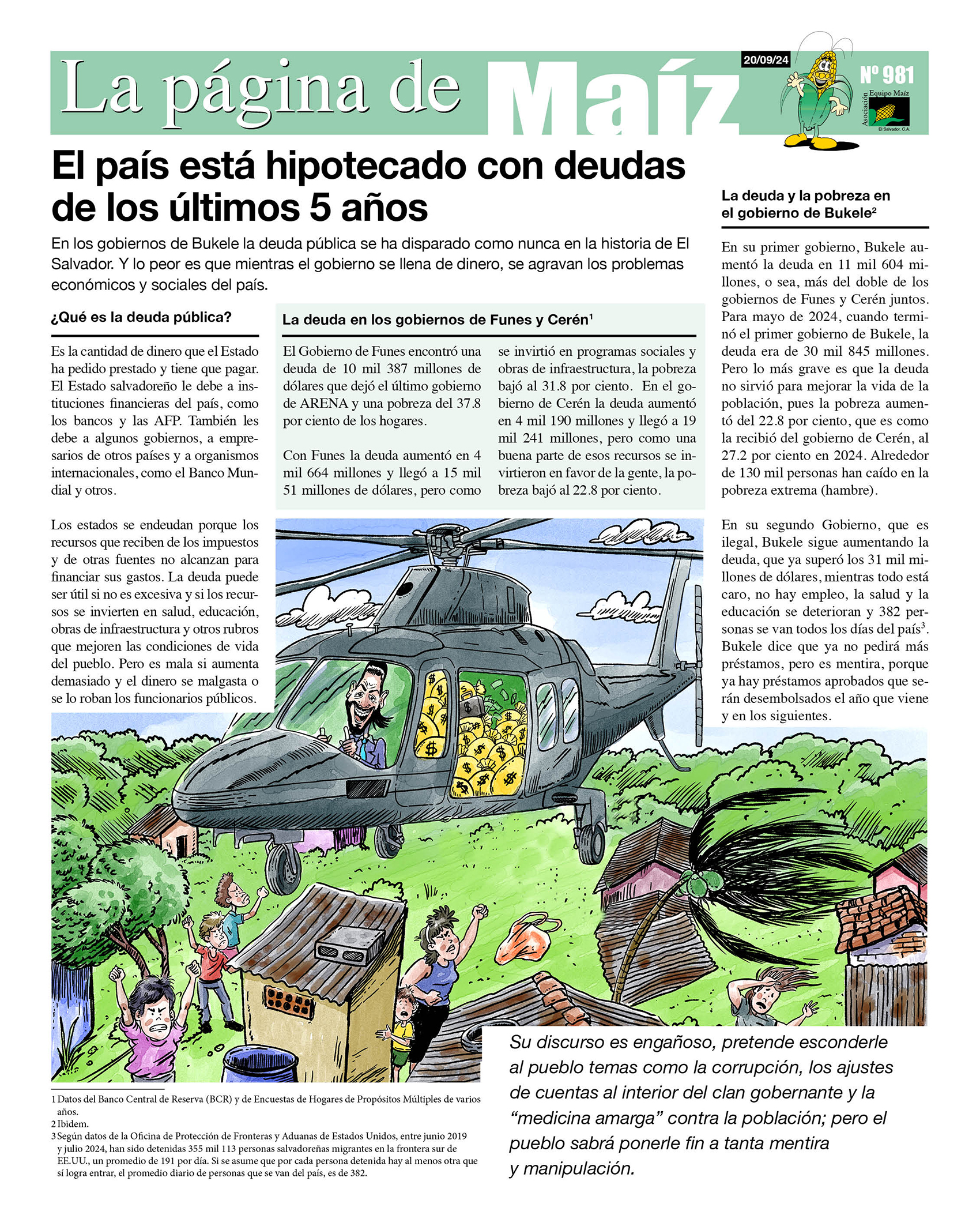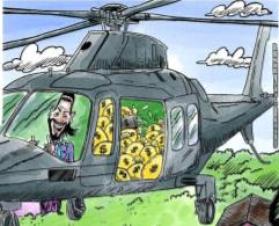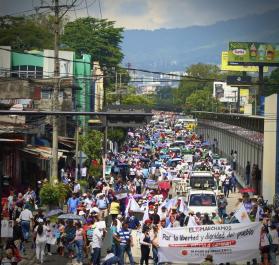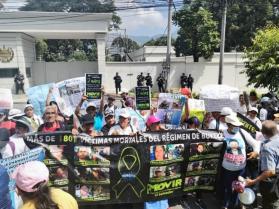Equipo Maíz Corrects Bukele’s Debt Narrative
Speaking to thousands of soldiers in formation on El Salvador’s Independence Day on September 15, Nayib Bukele announced that he would present a budget proposal on September 30 that would not require any outside financing. While government-owned media praised the move, social movement groups fear that it means a doubling down on austerity that has already resulted in the elimination of 22,500 public sector jobs, the closure of 15 government institutions, and the country’s only public university drowning in debt.
Below, we share a translation of popular education organization Equipo Maíz’s weekly newsletter, which points out that government debt and poverty have both ballooned under Bukele’s government.
September 20, 2024
The Country is Overburdened with Debts from the Last Five Years
The public debt has skyrocketed during Bukele's administration like never before in the history of El Salvador. And the worst thing is that while the government loads itself with money, the economic and social problems of the country worsen.
What is the public debt?
It is the amount of money that the State has borrowed and has to repay. The Salvadoran state owes money to the country's financial institutions, such as banks and AFP. It also holds debt with some governments, foreign businessmen, and international organizations, such as the World Bank and others.
States incur debt when the money they receive from taxes and other sources is not enough to finance their expenditures. Debt can be useful if it is not excessive and if the resources are invested in health, education, infrastructure, and other areas that improve the people's living conditions. But it is bad if it increases too much and the money is wasted or stolen by public officials.
Debt in the Funes and Ceren governments
The Funes government inherited a debt of $10.387 billion left by the last ARENA government and a poverty rate of 37.8% of households.
Under Funes the debt increased by $4.664 billion and reached $15.51 billion, but because it was invested in social programs and infrastructure works, poverty dropped to 31.8%. In Ceren's government the debt increased by $4.190 billion and reached $19.241 billion, but since a good part of those resources were invested in benefiting the people, poverty dropped to 22.8%.
Debt and poverty in the Bukele government
In his first administration, Bukele increased the debt by $11.604 billion, more than that of the Funes and Ceren governments combined. By May 2024, when Bukele's first government ended, the debt was $30.845 billion. But the most important thing is that the debt did not serve to improve life for the population, as poverty increased from 22.8%, the level at the close of the Ceren government, to 27.2% in 2024. About 130,000 people have fallen into extreme poverty and hunger.
In his second government, which is illegal, Bukele continues to increase the debt, which has already exceeded $31 billion. Meanwhile everything is expensive, there are no jobs, health and education are deteriorating and 382 people leave the country every day. Bukele says that he will not use more loans, which is a lie, because there are already approved loans that will be disbursed next year and in the following years.
His speech is deceitful. He tries to hide issues such as corruption, the settling of scores within the ruling elite, and the “bitter medicine” against the population from the people; but the people will know how to put an end to all the lies and manipulation.



 "I am a CISPES supporter because continuing to fight for social justice and a more people-centered country means continuing the dream and sacrifice of thousands of my fellow Salvadorans who died for that vision.” - Padre Carlos, New York City
"I am a CISPES supporter because continuing to fight for social justice and a more people-centered country means continuing the dream and sacrifice of thousands of my fellow Salvadorans who died for that vision.” - Padre Carlos, New York City

